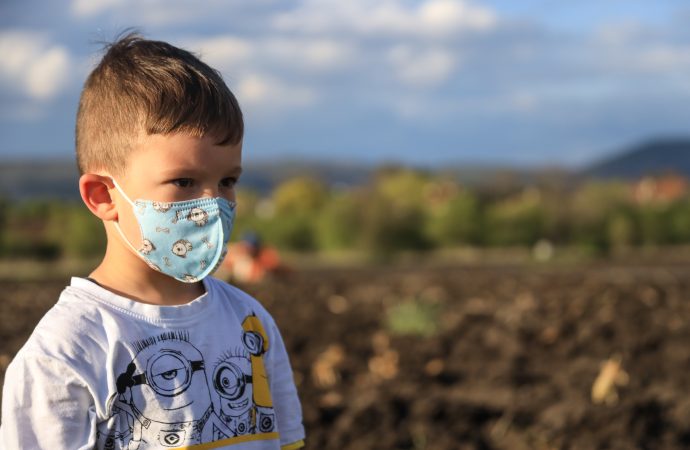As the world grapples with the COVID-19 pandemic, another respiratory illness is on the rise: Respiratory Syncytial Virus (RSV). This highly contagious virus can cause severe illness in young children and older adults. With RSV cases surging across the globe, it’s more important than ever to take steps to protect your family from this dangerous
As the world grapples with the COVID-19 pandemic, another respiratory illness is on the rise: Respiratory Syncytial Virus (RSV). This highly contagious virus can cause severe illness in young children and older adults. With RSV cases surging across the globe, it’s more important than ever to take steps to protect your family from this dangerous disease. In this blog post, we’ll share some simple tips for keeping your loved ones safe and healthy during this RSV surge. From handwashing techniques to vaccination recommendations, we’ve got you covered!
What is RSV?
RSV (respiratory syncytial virus) is a respiratory illness that is highly contagious, particularly among young children and the elderly. RSV can cause severe pneumonia requiring hospitalization in rare cases. There is no specific vaccine available for prevention of RSV, but there are several steps you can take to protect yourself and your family from this respiratory illness.
1. Immunize your children against RSV. The best way to prevent RSV infection is by fully immunizing your children before they become infected. The most effective way to do this is with a combined vaccine containing both measles and mumps components. Your pediatrician or health clinic can provide you with information on the best way to immunize your child against RSV.
2. Clean your home regularly. Poor hygiene practices leading to the spread of germs such as RSV can be reduced by regularly cleaning surfaces such as door handles, toys, televisions and chairs with household cleaners and hot water.
3. Avoid close contact with people who are sick. If you become ill with a cold or the flu, avoid close contact with others in order to prevent spreading the illness. coughing and sneezing into hands can also spread germs throughout a room quickly
The Signs & Symptoms of RSV
RSV is a respiratory virus that can cause fever, cough, congestion, and chest tightness.Most people who get RSV don’t have any symptoms. But in some people, RSV can cause serious health problems, including pneumonia (a lung infection).
If you or your child has any of the following signs or symptoms of RSV infection, see a doctor as soon as possible: high fever (over 39°C), severe cold-like symptoms (such as a sore throat that won’t go away, a runny nose that doesn’t stop, coughing that doesn’t improve with over-the-counter medication, difficulty breathing), severe chest pain or shortness of breath. If you are pregnant and have any of these signs or symptoms, see a doctor immediately.
To help prevent RSV infections in children and adults, follow these tips:
Stay warm and dry: Keep your home warm (between 23°C and 32°C) and dry. Cover your body when you’re not using it to avoid getting sick.
Avoid close contact with others: Avoid close contact with people who are sick (including members of your family). This includes avoiding staying in closed spaces with them and washing your hands often.
Clean your nose and lungs: Cleaning your nose and lungs regularly can help prevent RSV from spreading. Follow the instructions on the product packaging for cleaning products you use at home.
How to Keep Your Family Safe from RSV
RSV is a respiratory viral illness that most often affects young children and the elderly. It can be severe, with pneumonia as a common complication. There’s no vaccine available to prevent RSV, but you can take steps to protect your family from it.
Here are some tips for keeping your family safe from RSV:
1. Immunize your children against RSV before they become infected. There’s no vaccine available to prevent RSV, but you can provide protection by immunizing your children before they become infected. The best way to do this is to give them the seasonal flu vaccine (flu shot) in addition to RSV vaccine. This will help reduce their chances of getting seriously ill from RSV and possibly pneumonia.
2. Wash your hands regularly. One of the best ways to avoid catching RSV is to keep your hands clean. Always wash them thoroughly with soap and water after using the bathroom, changing diapers, or handling sick children or adults. Also, try not to touch your face or mouth unless you’ve washed your hands first.
How to Treat RSV in Your Family
RSV (respiratory syncytial virus) is a respiratory illness that is highly contagious and can cause severe pneumonia in young children and adults. RSV is most commonly spread through the air, but it can also be spread through contact with saliva, mucus, or blood from an infected person. There is no vaccine available to prevent RSV infection, so you should take steps to protect your family members from this illness.
Here are some tips for protecting your family against RSV:
-Keep your home clean and dust-free. This will help to reduce the chances of spreading RSV droplets.
-Wash your hands often, especially before you eat or before you touch your face.
-Tell your kids not to share toys, cups, or other objects that could transmit RSV. And discourage them from close contact with people who are sick.
-Stay warm and comfortable when you’re sick.covering up as much as possible and avoiding drafts helps to increase your body’s ability to fight off infection.
Conclusion
Keeping your family safe and healthy during the RSV surge is crucial. Here are some tips to help you stay ahead of the virus: 1. Get a flu shot. The best way to protect yourself and your loved ones from the RSV surge is by getting a flu shot. This will help you avoid getting sick, which can reduce your chances of spreading the virus to others. 2. Keep your home clean and free of clutter. Cleaning and organizing your home can keep it free of germs that could cause illness, such as RSV-associated pneumonia or bronchitis . Clutter can also make it difficult for people with respiratory problems to breathe properly . 3. Keep your pets vaccinated against rabies . Pets can spread viruses to people, so it’s important to have them vaccinated against rabies in order to keep everyone safe! If possible, try to keep them indoors when there is an outbreak of RSV so they do not spread any illness around outside. And last but not least: give love and lots of hugs! They provide soothing warmth on chilly days – just like momma used to do!





















Leave a Comment
Your email address will not be published. Required fields are marked with *